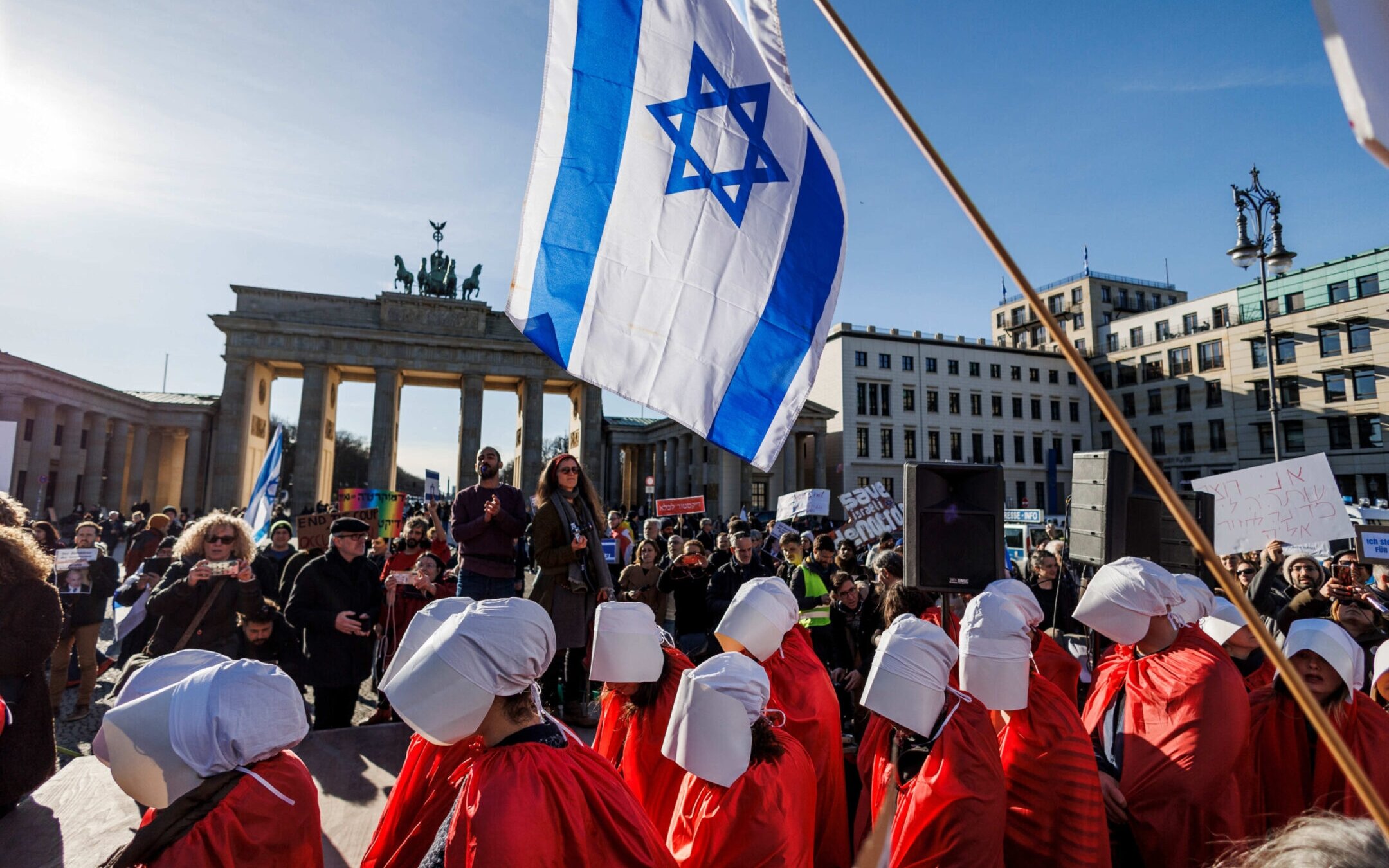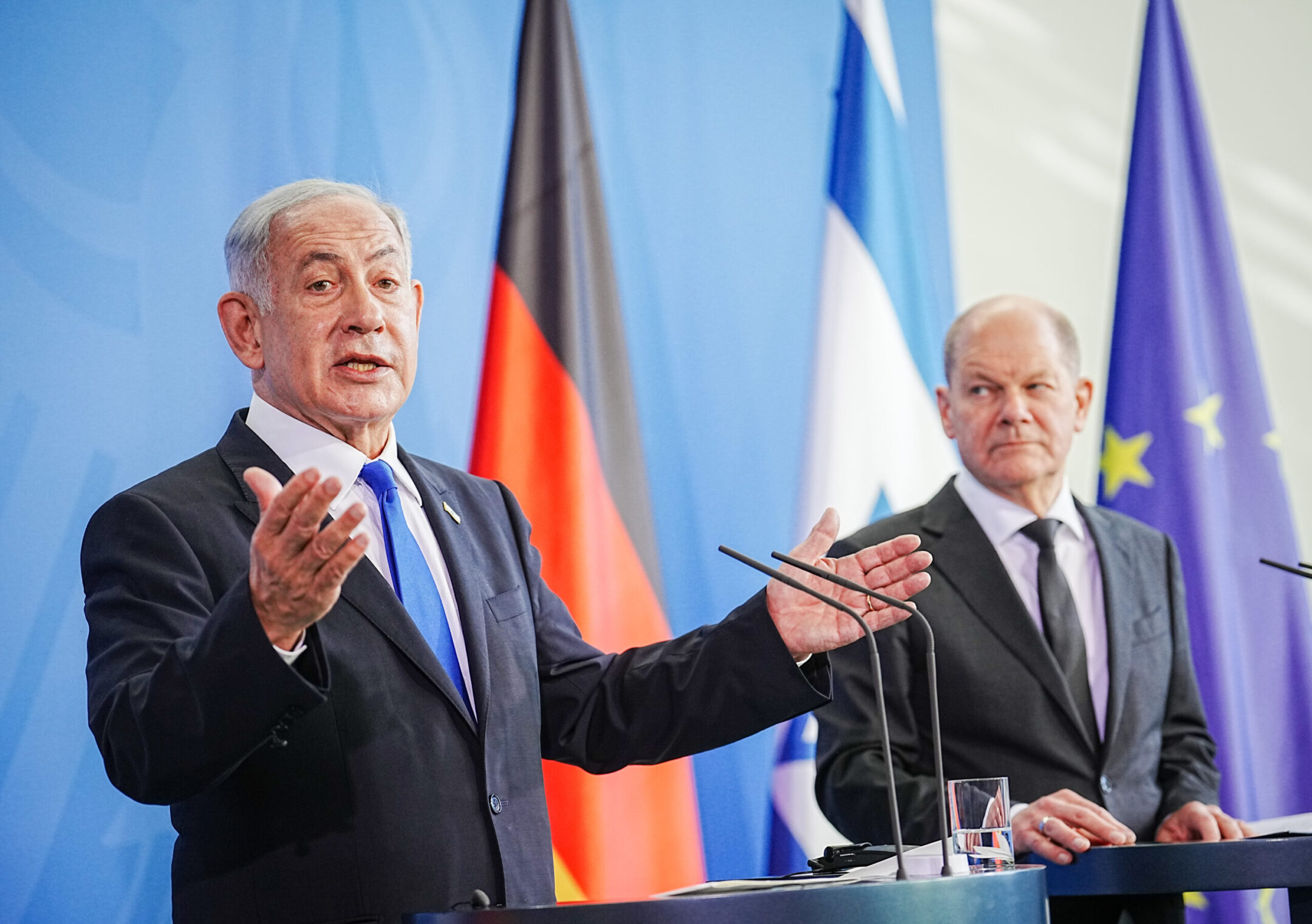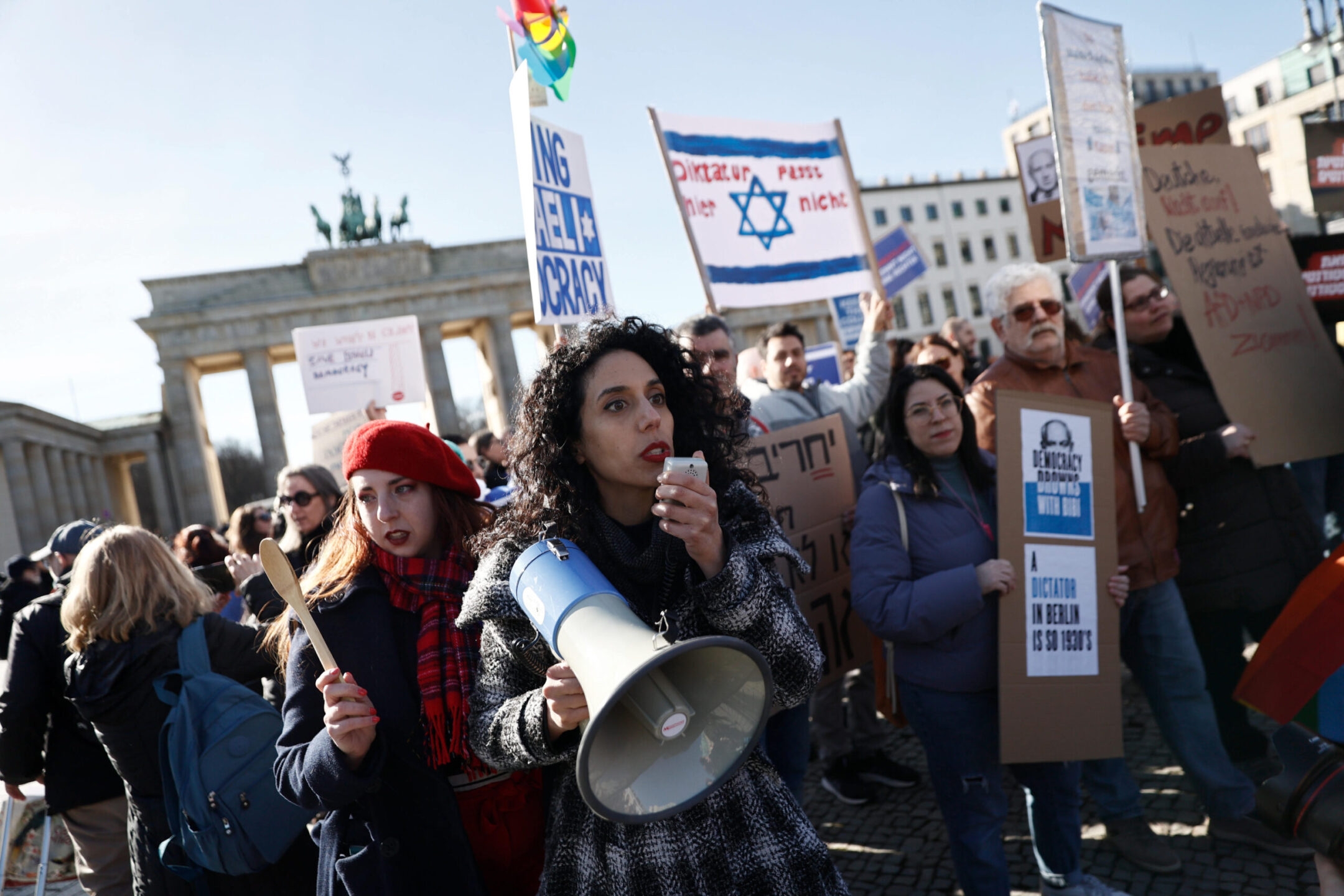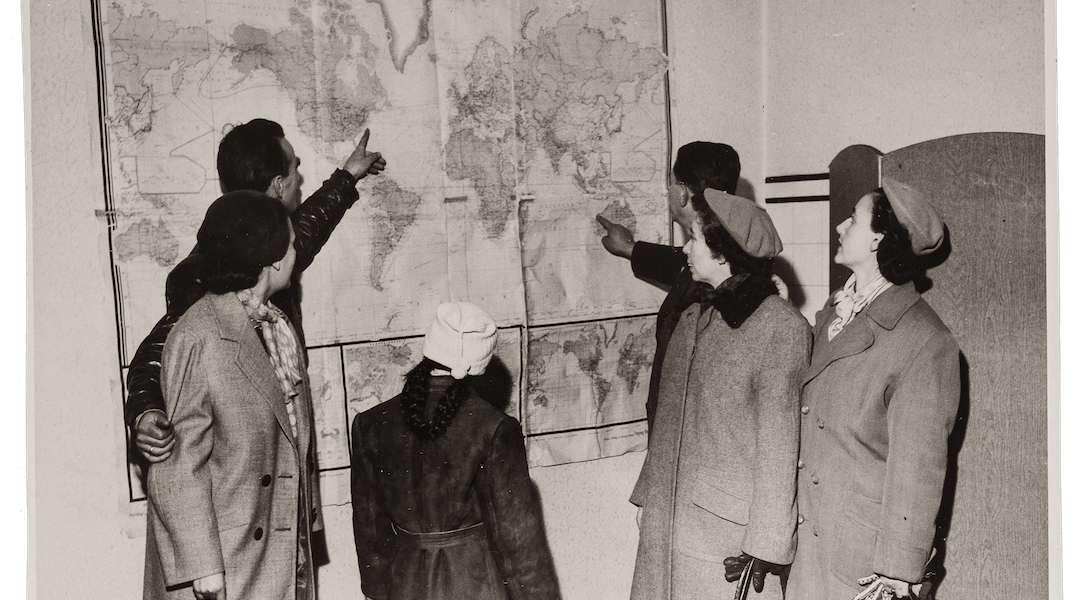In Berlin, Netanyahu faces tough questions from a key ally, while Israelis abroad protest
“We are following this [judicial reform] debate very closely and — I will not hide this — with great concern,” German Chancellor Olaf Scholz said

Demonstrators dressed in red costumes inspired by “The Handmaid’s Tale” protest against the Israeli government in front of the Brandenburg Gate on the occasion of the Israeli prime minister’s visit to Berlin. (Carsten Koall/picture alliance via Getty Images)
BERLIN (JTA) – Approximately 1,000 people — most of them Israelis living in Berlin — gathered Thursday at the iconic Brandenburg Gate here to show solidarity with protests against judicial reform in Israel.
The protesters’ messages were intended for Israeli Prime Minister Benjamin Netanyahu, who was in the German capital for meetings with German Chancellor Olaf Scholz. Netanyahu also visited a Holocaust memorial, which is located at a site from which some 10,000 Berlin Jews were deported by train to slave labor or concentration camps in 1941 and 1942.
But Netanyahu never came near the protesters: Berlin took extreme security measures to keep the public away from the Israeli leader, who stayed at the Waldorf Astoria Hotel, more than three miles away from the site of the protests. Many streets leading to the hotel were blocked.
That didn’t spare Netanyahu from hearing criticism of his legislation, which would sap Israel’s Supreme Court of much of its power and which is currently advancing in Israel’s parliament, the Knesset. At a joint press conference after a private meeting, Scholz said he had urged Netanyahu to consider a compromise proposal advanced by Israel’s president, Isaac Herzog.
“As democratic value partners and close friends of Israel, we are following this debate very closely and — I will not hide this — with great concern,” Scholz said. “The independence of the judiciary is a high democratic good.”
Netanyahu rejected Herzog’s proposal before leaving for Berlin but sought to reassure Scholz, who leads a key ally of Israel, that he would not reject democratic norms. “I want to assure you that Israel will stay a liberal democracy,” Netanyahu said.

It was Netanyahu’s second trip abroad in a week, after a visit to Italy last week that also drew protests, though fewer questions from Italian Prime Minister Giorgia Meloni. The judicial reform proposals have drawn concern from many world leaders, including U.S. President Joe Biden, as well as from an ideologically diverse coalition of Israelis.
Those gathering at the Brandenburg Gate, a few miles away from Netanyahu’s meeting with Scholz, said it was important to show their solidarity with protesters back home, even if the Israeli prime minister could not hear or see them. By some estimates, there are up to 10,000 Israelis living in Berlin, not including those who have come here with European passports, which many have by virtue of the fact that their grandparents escaped or otherwise survived the Nazi regime.
“We want to let our people at home, our families, our brothers and sisters, know that we are here, we see them and they are not alone,” one of the local organizers, graduate student Yael Hajor, 33, told the Jewish Telegraphic Agency before the event. She said her loose coalition worked together with an Israeli counterpart to reach out to sympathizers in Berlin, posting regular updates in Hebrew via WhatsApp.
“Actually, the visit of Netanyahu here helped us create more bridges between the groups” in the two countries, said Hajor, who plans to return to Israel after her studies.
At the Brandenburg Gate, a mixed bag of protesters gathered with posters, some waving Israeli flags, chanting and dancing to Israeli music. Some carried homemade signs with pro-democracy messages; other signs called Netanyahu a would-be dictator and compared him to Russian president Vladimir Putin. A group of women paraded in red robes meant to resemble those worn by women in the novel and TV series “The Handmaid’s Tale,” which is also an emerging symbol of the protests in Israel.
“Most Jews are democratic and therefore this is really embarrassing, what is happening in Israel,” said German-Jewish scholar and pundit Micha Brumlik, one of about 30 Jewish intellectuals to sign a statement this week calling on Germany to “to distance itself clearly and publicly from the anti-democratic and racist policies of the Netanyahu government.”

American scholar Jonathan Schorsch, a professor at the School of Jewish Theology in Potsdam, said he had a positive impression after wending his way through the crowd.
“I see that people care, and are trying to voice some opposition to this crazy putsch,” said Schorsch, using the German word for coup that is associated with Adolf Hitler’s rise to power. “It really is an appropriate word to use. It is very scary to me.”
But tensions over what messages to prioritize, which have also arisen in the protests in Israel, replicated themselves in Berlin.
“We are here to protest together with other Israelis against the new legal overhaul,” said Israeli graduate student Nimrod Flaschenberg, who previously worked for the left-wing Hadash Party in the Knesset. “But we also are saying that the deeper problem is the occupation and the oppression of the Palestinian people. And we think you cannot talk about one thing without the other.”
Brumlik, who made the rounds through the crowd on Thursday, described the protest crowd as both pro-Israel and anti-Zionist. “I am not really happy with the posters,” he said, explaining that “Israel within the borders of 1967 is not an apartheid state, and on the West Bank it can be debated.”
Berlin Jew Evelyn Bartolmai, who lived in Israel for about 20 years, said she normally does not go to demonstrations in Germany that criticize Israel.
“I don’t want to be lumped in with the antisemites who come to take advantage of the situation,” she said. “But this demonstration is not against Israel. Rather, it is against this government. It is for Israel, and that is why I am here.”
This article originally appeared on JTA.org.















